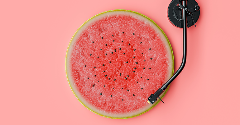News
Plant-based dairy is now available in toddler formulas
30 Sep 2020Israeli-based Else Nutrition released its first plant-based toddler nutrition formula on Amazon at the end of September. However, the company is already conducting clinical trials to bring a vegan infant formula that replicates the nutritional properties of breast milk to market by 2022.
Else Nutrition produces plant-based, organic toddler nutrition made with almonds, buckwheat, and tapioca that is free from dairy, soy, gluten, hormones, antibiotics, palm oil, and corn syrups. This vegan alternative differentiates itself from the products currently on the market, which are primarily based on dairy and soy protein sources, by focusing on formulating plant-based protein for children.

As the first plant-based, soy-free formula option for parents, according to the company, the product is positioned as a high-end formula alternative. A single can of Plant-Based Complete Nutrition, which holds 17 servings, sells for $36. A four pack costs $136.
Despite the steep price point, Else expects to continue expanding and launch a nutritional drink for children aged 3 to 12 next year. The line will compete against long-time staples like PediaSure.
This new vegan toddler formula is playing in the plant-based dairy space but is expanding it to the planet's youngest demographic. Already, the plant-based market is anticipated to reach $21.5 billion by 2024 at a 10% compound annual growth rate, according to Research and Markets. If Else can replicate the nutritional properties found in human breastmilk, it will undoubtedly generate buzz and expand the category further since it appeals not only to those interested in plant-based alternatives, but it is also entering the growing market for infant formulas.
Fortune Business Insights projects the $50 billion global infant formula market to reach $109 billion by 2027 as more children are reared on formula. This shift in infant and toddler nutrition has been building for years and major manufacturers have been working to introduce qualities that can enhance the nutritional profiles of the forumulas on the market. Gerber has researched opportunities to improve the nutritional values of its products, and DuPont invested in developing probiotics for use in formulas to build infants' gut biomes, supporting immune, digestive and cognitive development. Recently, companies have pushed the boundaries further. Biomilq, which recently raised $3.5 million from Bill Gates’s investment firm, is working toward culturing human breast milk in a laboratory.
For now, Else’s infant formula remains in the testing phase. The company is taking the required steps for gaining approval from the U.S. Food and Drug Administration to mass market the product, Forbes reported.
Related news

Retail landscape lacks nutritious and affordable food, says ATNi
30 Dec 2025
A rapid increase in modern food retail has given retailers growing influence over consumer diets, according to global non-profit ATNi’s latest assessment.
Read more
Debate over ban on ‘meaty’ names for plant-based products reaches stalemate
26 Dec 2025
The debate over a ban on plant-based products using “meaty” terms has reached a stalemate, leaving manufacturers in limbo and still facing overhauls to their marketing and packaging.
Read more
Multi-sensory food and drink products to gain traction in 2026
16 Dec 2025
Trend forecasters predict that sensory elements will play a larger role, helping food and beverage brands differentiate themselves in a competitive market in 2026.
Read more
Big appetite for M&A between European and US food and drink companies
3 Dec 2025
Persistent tariffs on EU food and beverage exports have helped drive record levels of M&A activity between European and US companies this year, according to analysis by ING.
Read more
Non-UPF Program extends certification scheme to entire food industry
30 Nov 2025
The Non-UPF Program has extended its certification scheme to the wider food sector, championing a move towards healthier consumption habits.
Read more
Lancet study links UPFs to chronic disease risk
26 Nov 2025
UPFs are consistently associated with an increased risk of diet-related chronic diseases, according to a comprehensive review of global evidence in The Lancet .
Read more
Concerns swirl around cinnamon’s compliance with EU law
25 Nov 2025
Cinnamon may be a top functional ingredient, but it needs stronger protocols to ensure it meets EU food safety laws and quality standards, say researchers.
Read more
Oat Barista: Innovation for game-changing beverages
20 Nov 2025
Oat Barista is a clean label, sustainable, and innovative drink base specifically designed to create the perfect foam in one single ingredient.
Read more
How younger consumers are redefining ingredient choices and rejecting brand loyalty
18 Nov 2025
Gen Z and millennial consumers’ preferences for transparency, functionality, and purpose are “redefining the very nature of consumption itself”, says SPINS.
Read more
Hybrid formats and flexible positioning to disrupt category norms in 2026
17 Nov 2025
Trend forecasters expect food and drink to move more fluidly across occasions, functions, and formats as consumers seek versatility, novelty, and convenience.
Read more